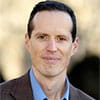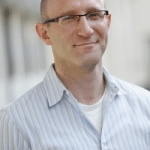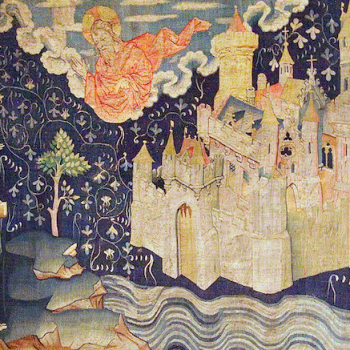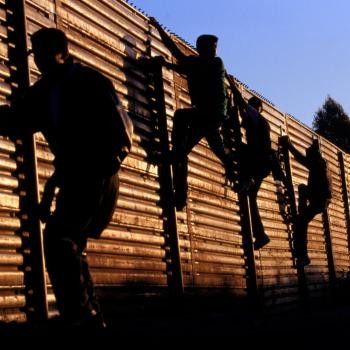 A few days ago I brought my 10-year-old daughter to basketball practice, where we were greeted by a SWAT team with assault rifles. Fortunately I had been alerted to their presence at the school gym where we practice and so was able to crack a joke: "just another Thursday evening, guys?" The occasion was the Coptic Orthodox Church Christmas Eve celebration. Our local Coptic church was a block away, and the school parking lot was the staging area for massive security that was there in the wake of the killings of Copts in Alexandria, Egypt, on New Year's Day.
A few days ago I brought my 10-year-old daughter to basketball practice, where we were greeted by a SWAT team with assault rifles. Fortunately I had been alerted to their presence at the school gym where we practice and so was able to crack a joke: "just another Thursday evening, guys?" The occasion was the Coptic Orthodox Church Christmas Eve celebration. Our local Coptic church was a block away, and the school parking lot was the staging area for massive security that was there in the wake of the killings of Copts in Alexandria, Egypt, on New Year's Day.
Despite my attempt at humor I found the scene unsettling. One of my players is a member of that church and I feared that the experience might be frightening for her and her family. And of course my next thought was this: what must it be like to be a member of that church in Alexandria, or of the church in Baghdad that was bombed just two months ago?
I have read of the targeting of Christians in places like Iraq, Egypt, and Pakistan. It would be very easy to read stories such as these through the lens of a "clash of civilizations"—most prominently Islam vs. the West (or Christianity, depending on one's view of history). And to be sure, there are many Muslims and many Christians who are spoiling for a fight.
I prefer to see in the footnotes of stories like these an altogether different reading of the task of civilization. Consider this story of Egyptian Muslims acting as human shields for Coptic Christians, for example. It is not the case that the expression of different religious faiths constitutes a zero-sum game, as if the success of one faith depended on the complete failure of another. We in the United States have learned the positive effects of religious freedom. This freedom recognizes the fact of pluralism, and the danger of forcing participation in a religious community because it is established by a state or even a majority within a state.
Civilization, I would suggest, is rooted in the desire to share the practices of the good life within a community. It is very easy to understand why so many conflate this impetus toward civilization with the impetus toward religion, because both are about self-transcendence and the orientation toward ultimate goods. There has been a lot of ink spilled over the past decade, though, trying to show the necessary link between religion and violence. Conventional wisdom has it that religion focuses on otherworldly goods and that civil society should tame the potential friction between religious groups.
The issue is deeper, though. I agree with William Cavanaugh's assessment:
This myth [of religious violence] can be and is used in domestic politics to legitimate the marginalization of certain types of practices and groups labeled religious, while underwriting the nation-state's monopoly on its citizens' willingness to sacrifice and kill.
Violence is endemic to the human condition; Christians call this tendency sin. The same sin is manifested in secular groups and religious groups; there is murder and war between religious people, just as there is murder and war between non-religious people. There are religious teachings about violence and war, just as there are secular arguments for violence and war.
If violence is embedded in sin, and if sin is embedded in the human condition, then Christian faith ought to be a participation in a community that practices turning away from sin. My thesis is that the task of the Christian today is to learn the practice of discernment of spirits: to seek to know God directly through prayer and participation in church and world. The task is not to withdraw from the world, to isolate oneself from those who do not share belief; such a withdrawal is the beginning of violence, for it is rooted in an attitude that religious others (those who don't share my faith) are somehow incapable of helping me learn the practice of discernment. The opposite is the case: we learn some of the greatest challenges to discernment when we must learn to live with religious others.





